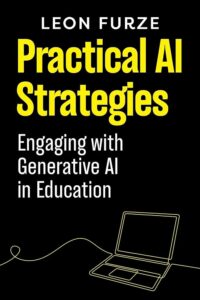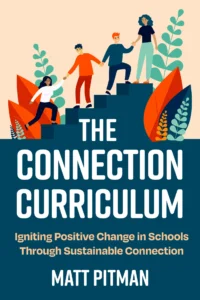Classroom Vibe: Practical Strategies for Better Classroom Culture by Tim O’Leary is a helpful resource for educators seeking to create a more productive and positive learning environment. Tim argues that classroom culture, which he calls classroom vibe, is a critical factor in student learning, and provides practical strategies for improving it. The book covers a range of topics, including the importance of teacher quality, the challenges of creating change in education, and the core elements of an effective classroom vibe.
One of the main takeaways of the book is the importance of teachers in the school setting. Tim emphasizes that teachers are the most significant lever schools have to impact student learning. He also acknowledges that not all teachers are equal and stresses the importance of understanding the variation in student experience within classes to improve teaching. Tim maintains that teachers must focus on integrating effective behaviours and practices that will enhance students’ perceptions of their teacher credibility and clarity, including building trusting relationships, demonstrating competence, passion, and availability, and embedding assessment strategies into practice.
The book’s core argument is that a razor-sharp focus on improving each teacher’s classroom vibe, over and above discrete strategies or initiatives, will yield teachers focused on improving what we know will enhance student learning. Tim provides three rubrics to facilitate teachers in gaining insights into their classroom vibe and outlines an inquiry cycle that can be used to engage in the challenging process of improvement, using evidence to identify opportunities for improvement and then engaging in an ongoing, iterative process of making small improvements to their practice.
Overall, Classroom Vibe is an insightful and practical guide to improving classroom culture. It provides educators with a clear and concise framework for understanding the elements of an effective classroom vibe and offers practical strategies for improving it. The book’s focus on evidence-based practices and teacher reflection makes it an essential resource for any educator seeking to create a positive and productive learning environment.





